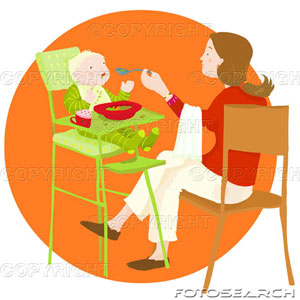Are we over-protecting children?
A new report out today claims that over-protecting children stops them developing the skills and resilience they need to protect themselves. Do you agree? The report “No Fear” explores a number of key areas including children’s play, anti-social behaviour, adult vetting and fear of strangers, identifying the ways in which our preoccupation with eliminating risk is restricting children’s freedoms and corroding their relationships with adults.
“Although there is a widely held view that children grow up faster today, in fact their lives are far more controlled than they were 30 years ago,” says former government adviser and author of the report, Tim Gill.
DIVAS says:
People, while trying to make their offsprings perfect, are messing with nature’s mechanism of growth.
Children should be allowed to tread an unknown path; if parents really care for their kids grow out of fear.
They should be allowed to do things own their own; even if they may hurt themselves while doing so – that’s the only way how an organism learns in nature.
And there are no 100% safe practises even if one wished for.
One Response to “Are we over-protecting children?”
cyberpunk, on November 18th, 2007 at 3:29 pm Said:
I agree with this. I think parents are overprotecting kids nowadays.
We grew up with less “protection” from things and other people, but we did ok (fine, I’m not a good example, but you get my drift)…
Kids need to learn and think for themselves.
How should we teach children to read?
Should schools concentrate on testing, or on fostering a love of reading?
Reading standards have barely improved since the 1950s despite billions of pounds spent on trying to raise English levels in primary schools, according to a review.
Pupils feel increasingly stressed about school tests and are losing their love for books, researchers for the Primary Review project found.
But schools ministers dispute the findings, which form part of the largest review of primary education for forty years and say primary standards were at their highest levels. (BBC)
DIVAS opines:
Home is the place where schooling begins. Kids love to imitate their first role-models: their parents.
A sense of humor is can only make the kids engaged in their studies.
Most of all, respecting each child as an individual creates the necessary trust in teacher which is most essential if to get attention from students.
Besides, stuffing students’ mind with never-ending-homeworks and the ‘High Expectation’ from a very early age only make them worried all the time; sometimes leading to anxiety and depression.
Kids, especially, learn better as the nature itself teaches its lessons. They should be allowed to take their adventures.
Teaching, like all things beautiful things in life, is more an art than only theories and information.
And, as the saying goes, what persuades people of all age to do impossible is, again, LOVE.
One Response to “How should we teach children to read?”
Michael B. Dycus, Ph.D, on November 10th, 2007 at 11:12 pm Said:
I agree with you whole-heartedly on your take on this subject.
In my opinion, you are 100% correct!
Thanks for this highly insightful post!
Should more doctors be available around the clock?
The Royal College of Physicians report says the current system of out-of-hours care is inadequate and inflexible. And as a result people forced to go to hospital for reassurance.
The report has warned that people with serious, longstanding illnesses are not getting enough help outside normal working hours resulting in people ending up at A&E because there’s nowhere else for them to go. Out-of-hours care has come in for scrutiny in recent years, and a GP contract negotiated in 2004 allowed family doctors to opt out of providing a round-the clock service.
DIVAS :
The news is from Britain. Just think what would be the situation in a country like Nepal, where docotor/patient is among the highest in the world.
However, no matter how concerned one is for public health sector, it shouldn’t be forgotton that doctors, too, are human beings. They just wear out after long hours of work.
Hence, the idea of round-the-clock doctors indeed sounds great, but making the same doctors work overtime might cause in serious error in the service they provide.
One Response to “Should more doctors be available around the clock?”
Mase, on December 21st, 2007 at 8:58 pm Said:
Who wrote this article? Half of the sentences don’t make sense and the grammar is horrible, nobody is going to take this seriously.
Is it right to smack children?
A complete ban on smacking has been rejected by British ministers, after a review suggested most parents opposed it.Laws on smacking in England and Wales were tightened in 2004 to stop parents and carers who assaulted children using “reasonable punishment” as a defence.
But children’s minister Kevin Brennan said laws would not be changed further, as new rules appeared to be working.(BBC)
DIVAS says:
My pa, now in his sixties and living with us two sons, still can’t understand why we ran away from home simply because he was ‘rough’ in his view for our well-being.
We as teenagers were so much fed up with our parents’ ‘wise’ scoldings that we were ready to anything to leave their house.
Although, in our 30s now, we have understood how their own background was affecting their behavior, and that parenting is really most difficut job, we still think much of sufferings would have been avoided with just a few nice words.
Should scientists talk about race?
WHAT CAN AND CAN’T YOU SAY ABOUT RACE?
… the nub of the story is that Dr. Watson was quoted in a British newspaper as saying that Africans are less intelligent than Europeans.
The Cold Spring Harbor Laboratory in the US suspended him, the Science Museum in London cancelled a talk he was scheduled to give. He’s gone home now without completing his book tour.
Regardless of whether you agree with the assertions attributed to him, should he or anyone else be allowed to make such comments? Or does race have to be removed from science’s research? Are there some beliefs about race which are simply intolerable and deserve disassociation and condemnation?
It’s worth adding that Dr. Watson says he doesn’t remember saying the comments. (BBC)
DIVAS:
Scietists should be allowed to discover any aspect of human life; coz no one can stop that.
And of course, even acc to evolutionary theory, some races may be more intelligent than the other, if their predecessors were in the business which required mental skills. Some races are physically sturdier similarly.
However, this should by no means be applied to decide on individual cases.
“Every writer I know has trouble writing.”
“Every writer I know has trouble writing.”
I was waiting for my turn.
The interview was for the post of Assistant Web Editor.
One of the anxious looking applicant began making introduction with everyone.
There was a gentleman reading a fortnightly.
I couldn’t resist myself, when I heard his name.
“Aren’t you the writer of ‘ABC’( name of the book withheld).”
“How could you remember my book written thirty years back?”
I quoted some of the lines from his book that I’d read some 15 years ago.
His eyes spread with happiness & surprise at once.
“O my goodness, you still remember after alll those years. Nobody remembers nowdays!”
“Your book ‘ABC’ is one of my favorites in Nepali literature,” I disclosed.
Of late I had been thinking that I was getting too old for job interviews.
And here was a writer of the calibre I envied appearing with me in a job interview.
i care for my baby,…black or white…
i care for my baby,…black or white…
‘Hey Uncle, congrats!’
My friend was unashamedly ‘congrating’ me.
It was his third baby.
The elder ones belong to the ‘fairer’ gender.
Hence, although i didn’t ask him, i was pretty sure that this must be the ‘unfair’ one…a boy.
I know about my friends perhaps more than a friend should know.
For example, I know that my this friend had aborted at one of the cases.
I mean abortion in its exact sense, no metaphors.
I know his wife very well. She’s a descent, sensitive, & also educated( besides other adjs).
I wanted to tease him why he was ‘congrating’ me for a result i’d made no contribution at all.
Their girls are healthy, lovely, & playful.
They easily became freinds with me the very first day i met them…a rare thing indeed. Kids are generally afraid of my ‘villainous’ looks.
Whenever their kids won’t ‘behave’, my relatives threaten with, ‘Do this/that, or i’ll tell Buzi(Monster) Uncle, Mama, Thuloba,..whatever’
And even the devil himself won’t like being addressed like that by the kids.
So, i was naturally very happy when these girls started playing with me.
I told him,’Look after these kids carefully, so that they don’t have to suffer like us.’
Once, when i asked him why were they waiting for a boy, he said, ‘You don’t know, she wants it.’
Everyone knows that the social conditioning wants it.
There are many reports from India that millions of female fetuses are ‘killed’ after identifying them with the ultrasound.
There are no such studies here in Nepal, but anyone can guess with certainty.
Of course, they care for their kids like all parents do.
Yet i know very well that things would never be the same with/for the two girls.
No matter how much their parents would love them, they’d never miss to observe that things no longer remain the same as they used to be.
But, hey feminists & activists, it’d be equally fallacious to conclude that the boy would enjoy being an ‘apple of the eyes’.
Anyway, i’m going to congratulate them all in the boy’s Nwaran(the naming ceremony) tomorrow.
One Response to “i care for my baby,…black or white…”
illnaturedgr, on December 26th, 2007 at 9:27 pm Said:
I think that it’s a total tragedy for all humanity to still have gender issues 5 days before the year 2008…
It’s a reality though and we must face it… Don’t think that only India or Nepal have gender issues,it’s China (which has the biggest problem due to overpopularity),Thailand and lots of other countries (not all of them of the so called “third world”) to cut it short…
“For whom does one write?”
“For whom does one write?”
Some two years back, we friends had an opportunity to attend a literary seminar. The second day of the seminar was in its full swing when we got there. As the students of literature, we were really excited for being able to see in person and listen to the great scholars and writers of our time – who were also our role-models.
On that particular day, two papers were presented, the latter of which was focused on the atrocities suffered by the marginalized elements in the society – in the name of religion, ethnicity, caste, etc.
After the papers were presented, the audiences were invited to put their questions on the papers that would be clarified by the presenters. Suddenly, one of our friends stoop up, walked awkwardly toward the dais and began his question huskily.
He pointed out the irony of garlanding the photos of kings , queens, politicians, & ministers in a literary seminar like that, symbolizing the dilemma of Nepali intelligentsia in sheer contrast to the topics being discussed. We, the friends, were dumbfounded – he was mature, yet a student – not supposed to make a criticism on the affairs of erudite scholars.
At that time Nepal was under the direct military rule of the King.
Interestingly, but not surprizingly, the same people nowadays have tunrned die hard republicans!
In spite of the fact that our friend could have presented himself in a better way, his message was loud and clear. He was immediately retorted by one professor-looking scholar that it was a political question, not literary, therefore could not be taken up. Another said such questions could also be dealt with – but only informally.
May be due the nervousness of appearing foolish, or the fear of being seen as an extremist; our friend withdrew his question and walked out of the seminar.
But questions once raised cannot be withdrawn. They hover in the air, linger in the mind.
BP Koirala, himself a politician, in one of his interviews, had mentioned that after being elected as the first prime minister asked the Harvard and Cambridge-educated economists in the Planning Commission to put the picture of a farmer along with the King’s on their wall; and look at the picture of that poor farmer while making any development planning for the country.
Wasn’t the question raised by our friend similar one, except that he was not a great figure in the contemporary history, but simply an awkward looking Mr Nobody?
Jean-Paul Sartre in his essay”Why Write?” contends, “The art of prose is bound up with the only regime in which prose has meaning, democracy…Writing is a certain way of wanting freedom. Once you have begun, you are committed. Committed to what? … or is it concrete everyday freedom which must be protected by our taking sides in political and social struggles?” Sartre concludes his essay with a question, “For whom does one write?”
Perhaps our novice friend, too, being a student of literature merely wished to learn from his well-versed teachers and predecessors, “For whom does one attend the literary seminars?”
‘i never give them a hell. i give them truth & they think it’s hell’
Contd from ‘One does not write for slaves’
Saturday, June 17, 2006
The girl, now married, came with her man yesterday. Though I donot talk to people that much, I was looking for some cue to know whether she’s happy or not.
My god, she looks completely normal. How easily she accepted everything, and made things easier for all in her family! This morn she and her man went to Daksinakali on her bro’s bike.
May be that she had two married elder sisters who frequently visit this place and her experienced parents have made things easier for her.
But still…I’d been to my one relative yesterday. I came to know that my cousin was pregnant. I talked to her, she too looks normal. Of course, her hubby seems to be a suitable match for her. But what about her being a mother, who isn’t that healthy herself? I doubt that she’ll give birth to a healthy baby.
I was tempted to put my views, but I restrained myself thinking that now that she was in an irreversible process, any negative comments would only hurt her.
I’ve come to agree with the view that either the economically higher or the lower class of the society can make free decisions about themselves. The middle class people, and the newly rich ones, who are the people I’m related to – I’ve started disliking their lifestyle and passivity.
Earlier I used to think that it was my shyness that was preventing me to socialize with them, but, nowadays I’ve come to the conclusion it’s the disagreement with their painfully ritualistic lifestyles and their impotency to rebel or live life in their own terms that puts me at odds with them.
I do not claim to have enjoyed my life better than others. Yet I feel proud to realize that I do not belong to the herd. Of course, I have encountered more difficulties and earned more criticism than the so-called ‘social’ people, to the extent that I was on the verge of collapsing once.
Still, I’ve recovered, and I feel that I’ve come out a winner! A very positive attitude is developing – goodwill and pity for others, and a stubborn conviction on living life in own terms. No Compromise, whatever…!
‘One does not write for slaves…’
Contd from ‘Marriage is a private affair’
Monday, June 12, 2006
The girl’s mother, brother, and middle sister came yesterday. How quickly they finished everything. Just Now the mother was telling another woman that everyone praised it, noone said it was not good. The women said,” How can one say anything? One can not say either good or bad.”
That day I was tempted to advise them not to hurry on the matters of the daughter’s marriage. But my experience with my cousin’s marriage perhaps had made me wiser not to comment anything in other’s matters.
More importantly, in case of arranged marriage sorted out by the parents only – isn’t there a greater risk of dissatisfaction later? No girl is trained nowadays to revere her man like the god; the feminist approach of teaching and learning has instilled a different value on man-woman relationship. The guardians feel so much pressure for their grown-up girls that they find it better to make the decision as soon as possible.
It’s strange that everyone is worried about their false-prestige, while in fact, none has any prestige at all. I can understand these things, as I myself was caught in such foolish cycle once. What’s the solution then? Finding a suitable mate should the resposibilty of the individual, just like finding a suitable career.
If in case, the boy or the girl has made his/her career, and wants to settle down and still hasn’t found a mate, then others, including the parents, may come to help. The girls, too, should take active role in the decision of their marriage, rather than later cursing their guardians later when they are not satisfied.
One day, in our class, a teacher was discussing on a feminist writer, Simon de Beauvre. Nowadays, I commented, males are more interested in women’s liberation than the females themselves, at least while giving sermons. The females only wail, that they are not treated equally.
He said that, though scientifically it has been proved that females can do everything the males can do, still men are oppressing the women in the society. He asked why the most philosophers, writers, and scientists of the past are only males. Why don’t men give equal opportunity to the women?I discussed with the teacher fiercely. My point was it’s the women themselves, who are responsible for their suffering, especially the educated ones. I asked him why men should give their power to others. If the women are really capable, they should fight for their cause and snatch the power from the men.
He said to me, “your values are very orthodox, you’ll learn later when you finish the course.” We friends laughed at this remark he made, we, some senior students have classified some teachers as bhai(kid) sirs! Unless the oppressed people themselves, whether black, ethnic, or the women, instead of cursing the oppressor, fight for their rights and be ready to suffer for the price of dignity, there can be no true liberation.
In this regard I agree with the Maoists that sometimes one has to take up a weapon to assert one’s rights. Of course, the Maoists, made a grave ideological mistake by taking up arms for retaliation and personal vengeance. And we can use anything as a weapon for our self-defence, not only the arms.
Jean Paul Sarte, the great existentialist philosopher and writer in his essay “Why Write?”, holds the view: “ One does not write for slaves…it is not enough to defend them with the pen. A day comes when the pen is forced to stop, and the writer must then take up arms.”
5 Responses to “‘One does not write for slaves…’”
Boink Blogs, on November 3rd, 2007 at 1:52 pm Said: Edit […] is a private affair’ Part II DIVAS put an intriguing blog post on â??Marriage is a private affairâ?? Part IIHere’s a […]
www.learnhypnosiseasily.info » ‘Marriage is a private affair’ Part II, on November 4th, 2007 at 3:02 am Said:
[…] DIVAS placed an interesting blog post on â??Marriage is a private affairâ?? Part II.Here’s a brief overview:No girl is trained nowadays to revere her man like the god; the feminist approach of teaching and learning has instilled a different value on man-woman relationship. The guardians feel so much pressure for their grown-up girls that they … […]
Vanadiaum, on November 4th, 2007 at 9:27 am Said:
An interesting blog as always.
There are only two blogs I read regularily, yours and http://www.thethoughtsalesman.com
Yours usually seems to be more cerebral, but the thought salesman is usually more about practivle issues, I think it’d be worth it to check him out















